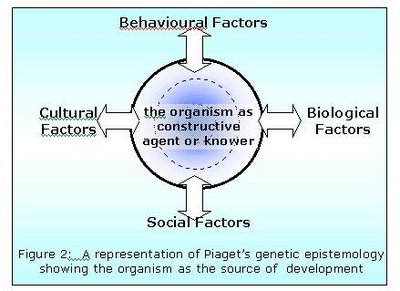question 2


Constructivist Education:
• Problem solving
• Group
• Peer group learning
• DLE- Distributed Learning Environment
• Proximal development
• Action research
• Social interaction
Constructivism
Definition Constructivism is a philosophy of learning founded on the premise that, by reflecting on our experiences, we construct our own understanding of the world we live in. Each of us generates our own "rules" and "mental models," which we use to make sense of our experiences. Learning, therefore, is simply the process of adjusting our mental models to accommodate new experiences
http://www.funderstanding.com/constructivism.cfm
“Constructivists believe that knowledge is ‘constructed’, that the thinker is both mentally and physically active in this construction and that the sociocultural context in which knowledge construction occurs provides the thinker with invaluable resources, support and direction.” (Fosnot, 1993; Phillips, 2000; Wells and Chang-Wells, 1992) From the ‘Education Phycology-Krause, Bochner and Duchesne 2003
All the fundamental underpinnings of constructivist education as stated in the list at the top of this posting are all elements of both Piaget and Vygotsky theories of education
Piaget and Vygotsky both stated that cognitive development took place in stages.
Piaget ‘was particularly interested in peer interaction as a means for children to expand their ideas, to overcome conflicts and achieve shared solutions that are more mature than individual efforts (Brown, Metz and Campione, 1996 [From the ‘Educational Phycology-Krause, Bochner and Duchesne 2003]))
How Piaget's Theory Impacts Learning
Curriculum--Educators must plan a developmentally appropriate curriculum that enhances their students' logical and conceptual growth.
Instruction--Teachers must emphasize the critical role that experiences--or interactions with the surrounding environment--play in student learning. For example, instructors have to take into account the role that fundamental concepts, such as the permanence of objects, play in establishing cognitive structures.
Vygotsky also stressed the “importance of social interaction in learning” [From the ‘Educational Phycology-Krause, Bochner and Duchesne 2003] After reading Vygotskys theories I believe one of the important things he observed was that learning and development occurs within a ‘sociohistorical’ and ‘sociocultral’ context.
How Vygotsky Impacts Learning:
Curriculum--Since children learn much through interaction, curricula should be designed to emphasize interaction between learners and learning tasks.
Instruction--With appropriate adult help, children can often perform tasks that they are incapable of completing on their own. With this in mind, scaffolding--where the adult continually adjusts the level of his or her help in response to the child's level of performance--is an effective form of teaching. Scaffolding not only produces immediate results, but also instills the skills necessary for independent problem solving in the future.
Assessment--Assessment methods must take into account the zone of proximal development. What children can do on their own is their level of actual development and what they can do with help is their level of potential development. Two children might have the same level of actual development, but given the appropriate help from an adult, one might be able to solve many more problems than the other. Assessment methods must target both the level of actual development and the level of potential development.
'Some Differences Between Vygotsky and Piaget
A Progression of Development
1 Piaget believed that development proceeds from the individual to the social world. Egocentric speech suggests that the child is self-centered and unable to consider the point-of-view of others. Piaget also maintains that development precedes learning.
2 Vygotsky believed that development begins at the social level and moves towards individual internalization. Egocentric speech is seen as a transition between the child's learning language in a social communicative context, and attempting to internalize it as "private" or "inner speech" (i.e., thoughts). For Vygotsky, learning precedes development.
3 Both agree that development may be initiated by cognitive conflict.
4 Like Piaget, Vygotsky believed that children's egocentric speech was an important part of their cognitive development. The two differed in how they viewed the purpose of egocentric speech.'
http://www.gse.buffalo.edu/fas/shuell/CEP564/Lectures/CogDev.htm



0 Comments:
Post a Comment
Subscribe to Post Comments [Atom]
<< Home